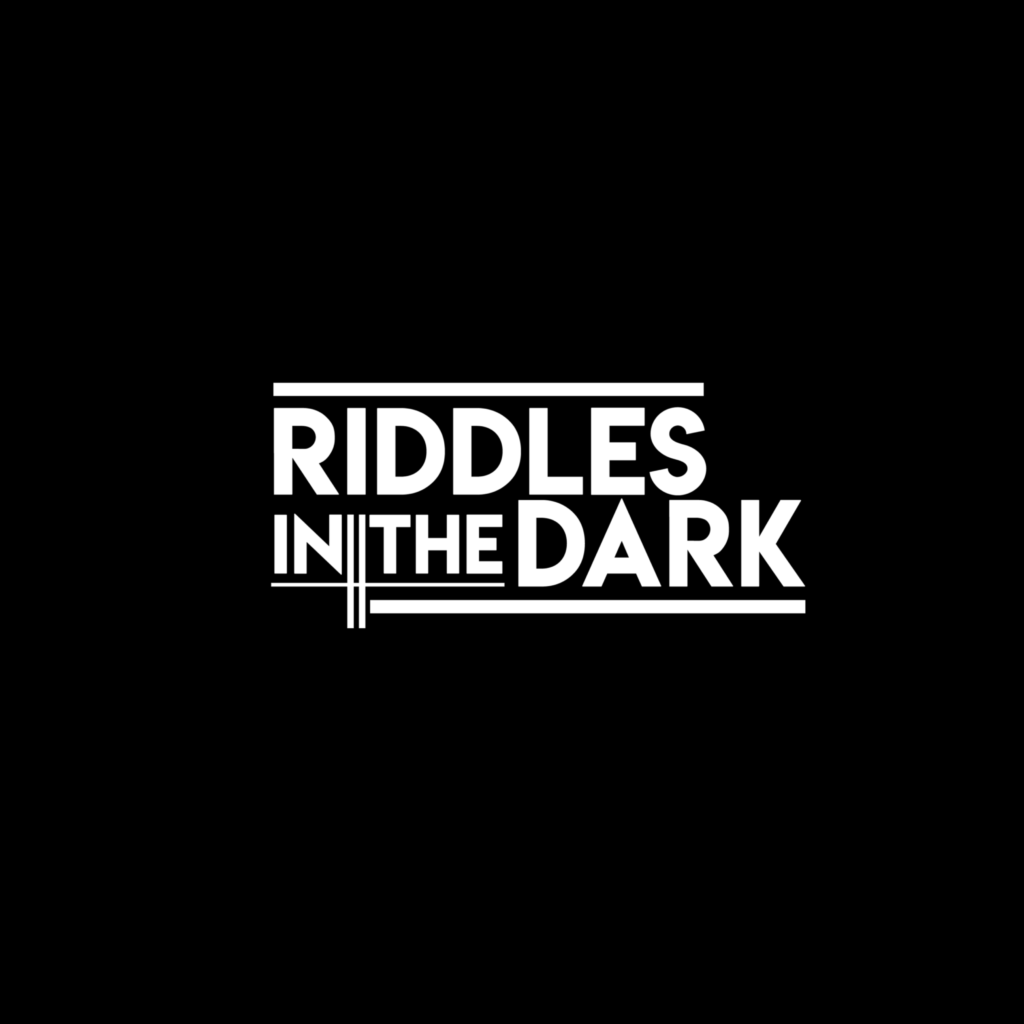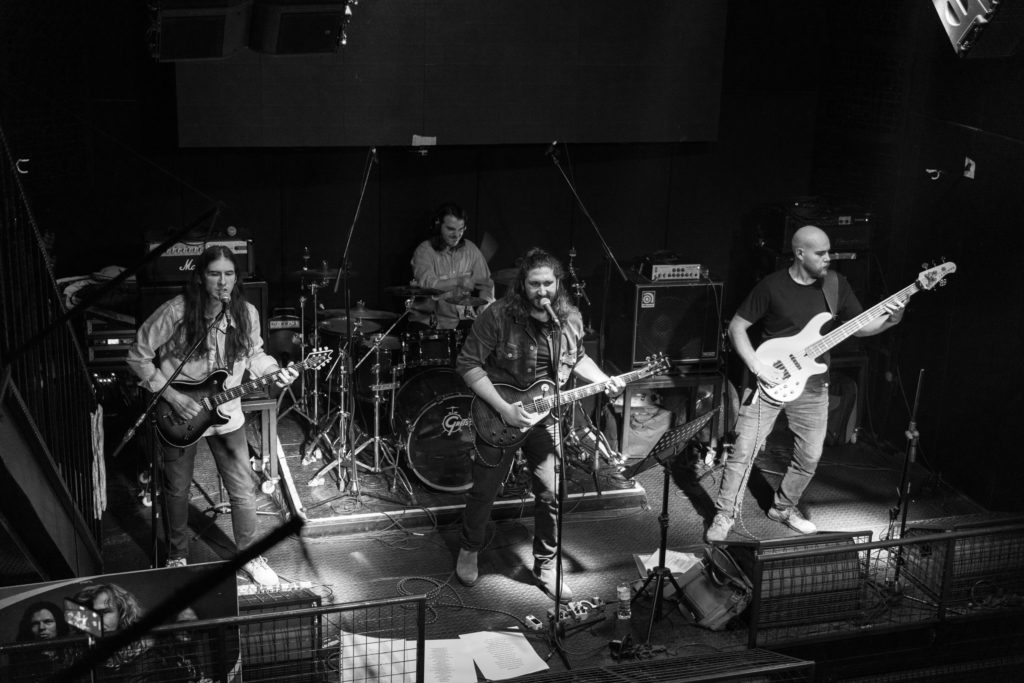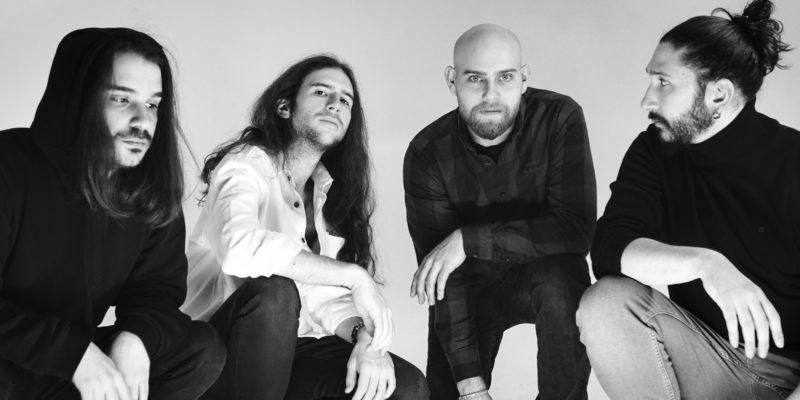Igniting a fresh degree of alternative appeal with their self-defined ‘Radio Friendly Progressive Rock’ sound, Turkish outfit Riddles In The Dark kindly stopped by for a chat.
We dug deep into all things songwriting, performance, collaboration, along with the political and topical undertones of their releases. Here’s the conversation in full.
* * *
Hi guys – such a pleasure to get to interview you, thanks for your time! You create a really unique brand of almost operatic style rock; what first inspired this, and how would you describe your sound?
Hello and thank you. The pleasure is all ours!
Growing up listening to Pink Floyd, Radiohead, Muse and many others we really draw influence from them. Gündoğdu was trained in Opera – Singing in Istanbul University State Conservatory for a couple of years. He did drop out of school in the end but his style and vocal technique is inevitably imprinted in our sound.
We have 2 more singers in our band; Kaan and Berk. Also Gündoğdu has a choir background in Boğaziçi University’s rock choir so we try to incorporate choral music into our sound as well. We like big strings, we like synth sounds. Lyrically we try to convey our opinions and questions about serious issues so we try to make our sound as big and as dramatic as possible.
While we would like to play with many sub-genres of rock music we like to describe it as Radio Friendly Progressive Rock.
Riddles In The Dark feels like a familiar name already – where did this come from?
Gündoğdu Akın – My girlfriend, my brother and I are huge Lord of the Rings fans. We watch the trilogy 2-3 times a year (extended) and the day I decided the name of the band was one of those days. At that point I had been thinking about a band name for almost 4 months and I was getting nowhere. I knew what I wanted the name of the project to feel like. It should have been political, questioning, wondrous yet not in an obvious way.
One night we decided to watch LotR together. There is this famous scene where Gandalf quietly smokes his pipe while whispering ‘Riddles in the Dark.’ My girlfriend suddenly jumped up and down saying this should be the name! It was the perfect name, I fell in love in that instant. We continued jumping up and down together and that day Riddles in the Dark was born.
What’s it been like taking things from the solo project realm to the fuller band, collaborative set-up?
Gündoğdu Akın – First of all it was pure joy to be able to work with real musicians who knew their instruments better than I. I mean I play the drums, guitars and bass to an extent but a real drummer, bass player or a guitarist makes all the difference in the world. Writing process became so much easier and unique because there are 4 different minds and styles thinking about the same melody and rhythms, which gives us the luxury of choosing from a lot of options.
Our sound grew into something bigger and more complex. Riddles in the Dark now sounds like a real band rather than a guy playing all instruments on the same record. I mean when you listen to our song Reminiscence (which was the first song we wrote together) you can hear all the different personalities of our band members. Kaan’s backing vocals also really helped our vocal arrangements to be much more versatile. His voice being a higher tenor than mine we were able to record a lot of different intervals.
“Our main purpose is to make the listener understand or question something in their own way.”
Tell us about your songwriting and composing process – where do you begin, and what do you hope to provide listeners with?
Most of the time we start with writing the music rather than the lyrics. Usually someone comes with an idea of a melody, a riff or something and we start developing on that. We really feed off of each other. Playing together really makes things easy to develop. At the start of the song Gündoğdu mostly has a rough idea of what kind of song it’s gonna be and arranges the parts accordingly.
Atakan and Kaan write melodic parts that elevate the song, Berk than re-does the drums in his own style. After everything is finished Gündoğdu starts with the lyric writing process. After a couple of re-dos we record the song and make it as perfect as possible. We want listeners to deeply feel the message we’re giving whether if it’s war or broken dreams or anything else.
Our main purpose is to make the listener understand or question something in their own way.
Your music is inspired by all manner of issues form injustice to exploitation and war – how do you narrow things down for each piece; how do you choose an issue at heart?
We as a band are not satisfied with what most of the mainstream music industry has to offer in terms of content.
Living in Turkey we’re not short of social issues to write about but we try to keep the issues as universal as possible.
There are times when you can’t just keep reading about this stuff and you need to start speaking up about it.

Is it therapeutic for you to explore these topics; does it relieve anxiety, or help you connect with people who are also concerned?
Certainly! Writing and playing about stuff really elevates the feelings and thoughts we have. We always write songs that we would want to listen to, so we assume there are other people that would need this music as well, whether to feel sad or angry or hopeful.
When you finish a song it is the greatest feeling in the world where you’ve created something from nothing and that feeling is therapeutic enough. We make these songs because we know that there are some people who think and feel about this stuff deeply and it gives us the drive we need.
Blind Hope is powerful, beautiful and haunting – what’s the story behind this one?
Gündoğdu Akın – One night I was sitting in my old room and feeling sad while we were arguing about the writing style of the band via messages and suddenly I heard this melody in my head (the main synth arpeggio part). At first I was thinking that it would be awesome if Atakan played this melody with his bass but as another more distorted guitar melody developed in my head I felt like Atakan should write his own parts on this one while the melody should be played by strings or a synth.
Half way to the song where piano takes over, I was done but the song still wanted something more after the modulations and the orchestral part. Kaan then took over the writing process and wrote this amazing guitar solo and a cool bridge that binds the solo part with the chorus again. The big riff and one final push was all it needed after that.
Vocal melodies were pretty easy to write actually. This is one of the rare songs where I wrote the vocals at the same time as the song. Lyrics were a bit challenging because while criticizing The American Dream, the song explores the disillusionment about some beliefs imposed on society; and, in turn, the society’s struggle to preserve them. When I started to write this song it was about The American Dream. But the song was completed after about 2 years and in that time Turkey’s political and economical situation changed a lot. So in a way we started to feel like we were writing about the loss of our own hopes and dreams. During that 2 years the song was actually nameless and then one day Kaan named the song as Blind Hope.
The live clip of that single is equally brilliant, if not more so for its raw passion and the image of you all united as a band. Have you noticed more of a response to live clips than studio singles these days, and if so – why do you think that is?
The pandemic and the quarantine process really boosted the need to go see a show live so there’s that. But even before that people loved watching live versions of their favorite songs. We do it as well. Of course live performance resonates with the audience much differently because it’s in the moment with all its imperfections and passion.
We think people respond better to genuine, honest performances where they can watch their favorite artists live. That’s why we’re releasing acoustic versions of our songs Live at RIST Istanbul starting 22 April 2022. At the end there’s nothing better than to see your favorite band with your friends and having fun!
Is there a tour planned this summer, any travel scheduled further afield in other parts of Europe or the world?
At this moment we’re planing a couple of concerts around Turkey, mainly in Istanbul and a couple of festivals. In the future we are planning on playing a couple of gigs in London and USA.
Your leading voice and writing style, the passion and build up, structure, emotion, all has a recognisable identity. There’s also a strong sense of versatility though, between songs like Blind Hope and Reminiscence, then again with the rhythm and catchy indie vibe of Better Days. Which song would you personally recommend to new listeners, and which do you enjoy performing the most?
Wow, that is a hard question. It’s like choosing a favorite child over the others. We feel like Reminiscence is the best introduction to Riddles. It’s because it is the first song that we’ve written and played together. It has surprising elements and many cool parts so it would be a great introduction.
As to our favorite song to perform it’s either Eventide or Blind Hope because they both ignite our audience really well.
You refer to your sound as ‘Radio Friendly Progressive Rock’ – what’s the quality that makes it radio friendly, which the more classic prog-rock acts perhaps don’t offer?
We chose to call ourselves “Radio Friendly Prog” over time because we never wanted to make music complex for the sake of it. For us, the story always comes first and we want our ideas to be understood even for the non-musician listeners so we try to stay on the line between being complex and simple.
You may find some of our songs to be “too simple” for a prog band and say “OMG! is this in 4/4!? Give me weird time signatures with loads of shredding (hahahaha)!”. We are trying to deliver our stories in the best way we could think of and we never hesitate to implement our full technical knowledge and skills too. That’s why you can spot proggy elements even in our simplest songs. So if you hear anything complex from us, it’s very likely that it means something in the story and the concept.
Our biggest prog influence as a band is probably Pink Floyd but we also share a lot of common personal favourite prog bands such as Camel, Porcupine Tree, Opeth, The Alan Parsons Project, The Claypool & Lennon Delirium, Symphony X, Dream Theater and so on. We don’t make music to be a prog rock band, we just make music as it is and over time ended up showing lots of prog-rock signs so that’s the main reason we’re calling ourselves “Radio-Friendly Prog-Rock”. We’ll see if that name sticks with us in the future.

Do you have a dream venue or event in mind for the future?
There are a lot of great venues a band can dream of performing at. We know that it’s way down the road but we hope someday we have a big enough fan base to fill out Madison Square Garden.
What’s your state of mind as a live act now after almost two years of lock downs and uncertainty?
It definitely feels great to play together as a band. Kaan lives in London so we really missed each other a lot in this time. Also there is nothing like a live audience singing your songs back at you so it feels great to be able to perform on a stage again!
What’s the best piece of advice you were ever given?
“Songwriting is a process, best songs are rarely written at the first try.”
Is there anything else we should know?
We are currently working on a new single, the song will be in all digital platforms in a month or two! We also try to keep an active Instagram account to connect and engage with our fans so follow us on social media.
Thank you a lot for interviewing us, this was great!
* * *
A huge thank you to the band for their time & insight. Check out Riddles In The Dark on Facebook, iTunes, Twitter, Instagram & their Website.

